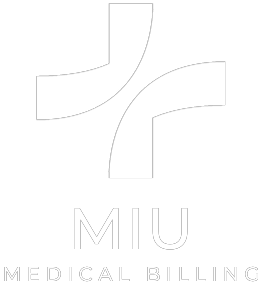What Is Place of Service 24 (POS 24) in Medical Billing?
In the domain of medical billing, it’s absolutely necessary to maintain accuracy and compliance. To make things simple, we have Place of Service (POS) codes, and their correct usage is one of the key components of medical billing. As discussed previously in our blogs, POS codes in claims indicate where healthcare services are provided.
There are over 50 POS codes, and among these is one of great importance known as Place of Service 24 (POS 24), which plays a huge role in outpatient surgical billing. For a thriving healthcare setting, their medical billing team should have an in-depth knowledge and understanding of POS 24 and when and where it should be used.
Definition of POS 24
Place of service (POS) code 24 specifically means “Ambulatory Surgical Centers (ASCs) according to the Centers for Medicare and Medicaid Services (CMS). It is designated for medical services provided in a freestanding facility that is not a part of a licensed hospital but is equipped enough to manage outpatient surgical procedures. The facility specifically designates these centers for same-day surgeries, eliminating the need for an overnight stay.
What Is an Ambulatory Surgical Center?
An Ambulatory Surgical Center comes in very handy in a way that it has less cost, shorter waiting time, and a very streamlined patient experience; on the other hand, it’s completely opposite in a traditional hospital. Common procedures performed at such centers include colonoscopy, cataract surgery, hernia repairs, orthopedic procedures, and pain management injections. An ambulatory surgical center is more equipped than a physician’s office and less equipped than a hospital; hence, it’s important that the biller assigns POS 24 correctly to reflect this setting of care.
When Should POS 24 Be Used?
One can use POS code 24 only on claims of patients when the physician and providers provide surgical healthcare at a certified Ambulatory Surgical Center. The surgeon carries out outpatient procedures at the center with a board-certified anesthesiologist who administers anesthesia during the procedure. It is crucial to note that for a freestanding clinic to qualify as an ambulatory, it should meet the requirements of CMS and be officially licensed. Such healthcare settings should be billed under POS 24 code.
Impact of POS 24 on Billing and Reimbursement

POS 24, when used properly, is a key element for reimbursement and billing. Why? Because reimbursement rates for procedures performed at an ambulatory surgical center vary from other healthcare setting reimbursement rates. ASCs are mostly governed by Medicare’s ASC payment methods, which are different from hospitals’ outpatient departments.
Let’s say a patient visits an ASC for a minor surgical procedure; Medicare will pay a lower reimbursement to the center as compared to if the patient went to a hospital. The code POS 24 should be used wisely because if it’s misused for a hospital outpatient department, it will result in claim denials and audits.
Modifier Usage with POS 24
Sometimes medical billers use modifiers with POS 24 to provide additional information for different procedures done bilaterally, ensuring proper reimbursement and compliance. There are various modifiers that can be used. These are as follows:
- Modifier – SG: When a service is performed in a certified ambulatory surgical center, this modifier is used on the facility side of the claim, i.e., an ambulatory surgical center facility fee.
- Modifier – RT (Right Side) and Modifier – (Left Side): These modifiers are indicated when the procedures are performed on the right and left sides of the body. These modifiers are essential in situations where surgeries are performed on paired limbs or organs to avoid confusion in claims processing.
- Modifier – 50: This modifier is indicated when bilateral procedures are performed during the same session.
POS 24 vs. Other Place of Service Codes
To enhance the medical billing processes, it’s crucial for a medical biller to be well-versed with all POS codes, their meaning, and their purpose. This ensures accurate billing and proper reimbursement. As we have discussed previously, each POS code represents a distinct care setting, and any error related to these codes can lead to problems such as claim denials and audits. Here are some of the most common POS codes in comparison with POS code 24:
Place of Service Code 24: Ambulatory Surgical Center:
As discussed previously, POS code 24 is used when a patient receives services at a licensed freestanding ambulatory surgical center. These work independently as a medical facility that is capable of performing outpatient surgeries. This benefits the patients in a way that they can get treated in an economical way if their surgeries are minor and don’t need a hospital stay.
Place of Service Code 22: Hospital Outpatient Department:
POS 22 is used when a patient goes to a hospital’s outpatient department to receive healthcare services. An ambulatory surgical center is quite similar to an outpatient hospital department, but their billing procedures and reimbursement rates are very different, as hospital outpatient departments are usually more expensive. The biller should be vigilant enough to know the difference and use POS 24 when a patient visits a licensed standalone ambulatory surgical center instead of a hospital.
Place of Service Code 21: Inpatient Hospital:
POS code 21 is used when a patient is officially admitted to the hospital for a minimum of 24 hours. An inpatient hospital service and an ambulatory surgical center service are very different from each other, as one requires a stay at the hospital and an ASC does not; hence, a mistake between these codes could raise concerns about compliance and even result in audits.
Place of Service Code 11: Doctor’s Office:
Wherever POS code 11 is used in medical billing, it refers to a doctor’s or physician’s office. A physician’s office provides healthcare services such as consultations, examinations, minor surgical procedures, and injections. This kind of healthcare setting is not authorized to perform any major surgeries. It is of great importance that POS code 24 is used for Ambulatory Surgical Center because POS code 11 is mistakenly used; it could trigger the payer’s scrutiny.
Why Choosing the Correct POS Code Is Important?

Providers already have a lot on their plate when it comes to administration and patient care, especially if they are running a private practice. One of the greatest and most fruitful investments in the healthcare industry would be to invest in a team of expert medical billers and coders who realize the value of accuracy in medical billing even if it’s just for the POS codes. This would have a significant compliance ramification in addition to being an administrative accuracy issue.
As we now know that every POS code indicates a distinct location and environment, it has a significant impact on the billing structure and reimbursement rate. An error in any of these codes would negatively impact the revenue cycle and cash flow to the healthcare setup or even damage the reputation. Repeated errors may lead to fraud accusations and payer audits, especially in the cases of overpayments.
Conclusion
In short, POS 24 usage plays a huge role in the financial success and compliance for healthcare providers. It is upon the medical billers as a crucial responsibility to make sure all these POS codes are placed correctly on the claims to help healthcare practices avoid compliance issues and receive timely reimbursements. The medical billing team is required to always stay updated with the ever-evolving POS codes policies and billing regulations to avoid needless delays. In the long run, all these efforts of attention to detail benefit the healthcare setting’s financial stability and indirectly the healthcare standard.




